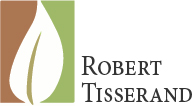 Q: I have heard that tea-tree oil is one of the only things that can be used to help combat the superbug in hospitals – is this right?
Q: I have heard that tea-tree oil is one of the only things that can be used to help combat the superbug in hospitals – is this right?
A: I presume you are referring to methicillin-resistant Staphylococcus aureus, or MRSA (there are several other antibiotic-resistant bacteria.) One of the current problems being faced in hospitals worldwide is the increasing resistance of dermally carried MRSA to soaps and ointments intended to eradicate it. These contain active ingredients such as mupirosin, triclosan or chlorhexidine, but bacteria are becoming increasingly resistant to these.
In vitro studies in Australia and the UK have found that tea tree oil is effective against MRSA at concentrations as low as 0.25%. To eradiate MRSA on the skin, creams, ointments and body washes with at least 5% tea tree oil have been successfully used in hospital trials.
Other essential oils including oregano, thyme, patchouli, lemongrass, lavender and geranium are also able to kill MRSA if used in sufficient concentration, but most of the research has been on tea tree oil. Note that systemic MRSA, which can be fatal, is not yet known to be treatable with essential oils. However, in the video clip below you will hear an account of how a man’s life was saved with a mixture of clove, cinnamon, rosemary, lemon and eucalyptus. He had contracted an antibiotic-resistant strain of bacteria in hospital, and conventional treatment had failed.


Do you know if anyone has submitted scientific studies to the FDA for consideration as far as creating a new monograph for guiding the use of such EOs in topical products such as hand sanitizer? There are some brands that seem like they really might be beneficial, a couple of which received “Warning Letters” from the FDA. Other brands seem to have just jumped on the bandwagon and are selling products that might be dangerous if they were used in serious situations where spreading bacteria is a risk, instead of known products that work, such as alcohol hand sanitizers.
Hi Sue, I have not looked into either the concentration that would be required of essential oil in a hand sanitizer nor which essential oil blend would be ideal (skin safety also a factor here). But I presume microbiological testing would need to be done before any such product could make a claim. When I developed an essential oil-based antiseptic cream, we found that we needed 10% essential oil content to be effectively antibacterial. But, there was no alcohol content of course.